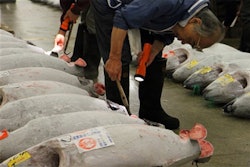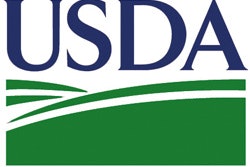LOS ANGELES (AP) -- Voters spurned a ballot measure that would have made California the first in the nation to affix labels on breakfast cereals, baked goods and other processed foods containing genetically modified ingredients.
The rejection Wednesday followed an expensive offense from agribusiness and chemical conglomerates, which raised $46 million to blitz airwaves and mailboxes with negative advertising.
With 82 percent of precincts reporting, Proposition 37 failed 54 percent to 46 percent.
The closely tracked initiative was seen as a test of consumers' appetite toward genetically modified crops. Outsiders hoped a victory in trend-setting California would catapult the issue to a national stage.
Several hours after polls closed with the measure trailing, the No on 37 campaign appeared pleased.
"We've said from the beginning of this campaign that the more voters learned about Prop 37, the less they'd like it. We didn't think they'd like the lawsuits, more bureaucracy, higher costs and loopholes and exemptions. It looks like they don't," said spokeswoman Kathy Fairbanks.
Representatives with the California Right to Know campaign tried to put on a positive face.
"No matter what happens, we've raised awareness of a very important issue," said Grant Lundberg, chief executive of Lundberg Family Farms, who co-chairs the California Right to Know campaign.
Representatives from both sides did not immediately respond to emails seeking comment in the early morning hours Wednesday.
Consumer activists and the organic food industry said shoppers crave information about what they're eating and should be given all the information they need to decide for themselves whether to buy products containing genetically altered ingredients.
Opponents fear labeling would amount to placing a skull-and-crossbones symbol on their products even though studies show bioengineered food to be safe. They also warn of higher grocery bills if the initiative passes.
A win would have put California at odds with the federal government, which does not require such labels because bioengineered foods are not significantly different in taste, texture and nutrition.
It would also have rattled American agriculture, which has long harvested corn, cotton, soybean and other plants in which the DNA has been tinkered with in the laboratory to resist pesticides and ward off disease. GMO crops are used for animal feed or processed into food ingredients found in many cereals, baked goods and sodas.
Despite scientific consensus that genetically modified foods on the market are as safe as conventional foods, some consumers remain leery and efforts have been mounted to force special labels. Mandatory labeling exists elsewhere, including the European Union.
More than a U.S. dozen states this year introduced GMO labeling bills, but all failed. A citizen's petition to mark genetically engineered foods nationwide is pending before the U.S. Food and Drug Administration.
Under Proposition 37, most processed foods would have had to bear the label "partially produced with genetic engineering" or "may be partially produced with genetic engineering" on boxes, cans and bottles by 2014. The words "genetically engineered" would be required to appear on the front package of a small variety of produce or on store shelves.
Such products also would be prohibited from using the terms "natural" or "naturally made" in their advertising.
Excluded are organic products, restaurant meals and alcoholic beverages. Meat and dairy also are exempt, even if the animals were fed with genetically modified grains.
Grocers and other retailers would be responsible for ensuring their shelves are stocked with correctly marked items.
The state and private attorneys could sue for violations and obtain a court injunction to halt the sale of a product. The nonpartisan California Legislative Analyst's Office estimated the initiative could cost more than $1 million a year to enforce.






















